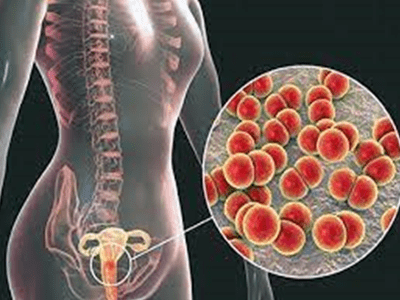Pelvic inflammatory disease (PID) is an infection of the female reproductive organs. It most often occurs when sexually transmitted bacteria spread from vagina to uterus, fallopian tubes or ovaries.
Symptoms
The signs and symptoms of pelvic inflammatory disease might be mild and difficult to recognize. Some women don't have any signs or symptoms. When signs and symptoms of PID are present, they most often include:
- Pain — ranging from mild to severe — in lower abdomen and pelvis
- Abnormal or heavy vaginal discharge that may have an unpleasant odor
- Abnormal uterine bleeding, especially during or after intercourse, or between menstrual cycles
- Pain during intercourse
- Fever, sometimes with chills
- Painful, frequent or difficult urination
Causes
Many types of bacteria can cause PID, but gonorrhea or chlamydia infections are the most common. These bacteria are usually acquired during unprotected sex.
Less commonly, bacteria can enter the reproductive tract anytime the normal barrier created by the cervix is disturbed. This can happen during menstruation and after childbirth, miscarriage or abortion. Rarely, bacteria can also enter the reproductive tract during the insertion of an intrauterine device (IUD) — a form of long-term birth control — or any medical procedure that involves inserting instruments into the uterus.
Risk factors
A number of factors might increase risk of pelvic inflammatory disease, including:
- Having multiple sexual partners
- Being in a sexual relationship with a person who has more than one sex partner
- Having sex without a condom
- Douching regularly, which upsets the balance of good versus harmful bacteria in the vagina and might mask symptoms
- Having a history of pelvic inflammatory disease or a sexually transmitted infections
There is a small increased risk of PID after the insertion of an intrauterine device (IUD). This risk is generally confined to the first three weeks after insertion.
Complications
Untreated pelvic inflammatory disease might cause scar tissue and pockets of infected fluid (abscesses) to develop in the reproductive tract. These can cause permanent damage to the reproductive organs
Complications from this damage might include:
- Ectopic pregnancy.
- Infertility
- Chronic pelvic pain.
- Tubo-ovarian abscess

